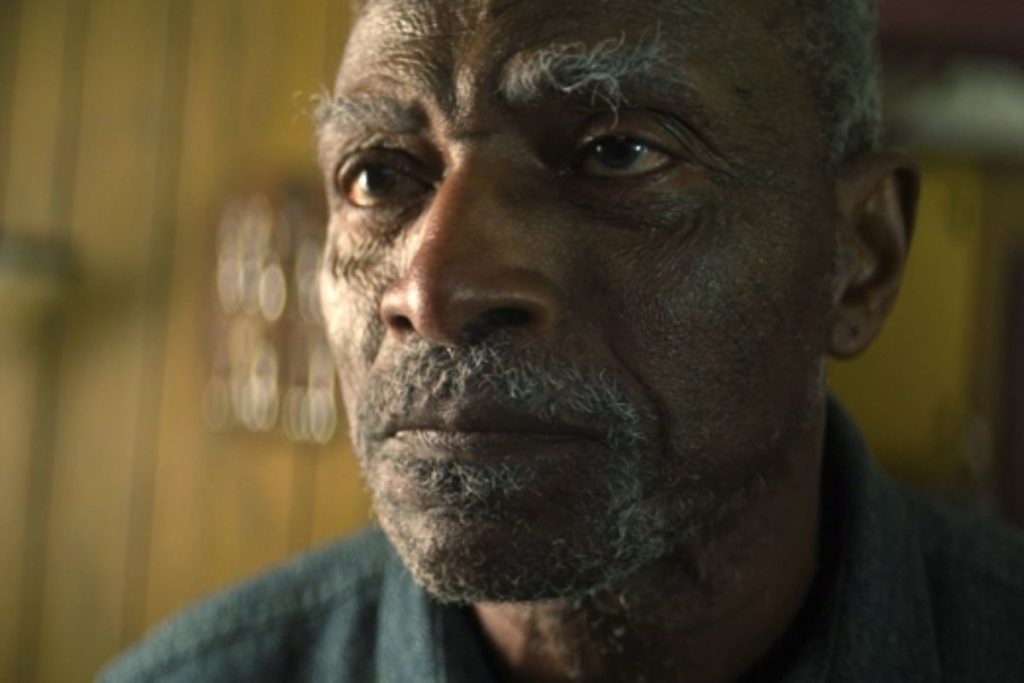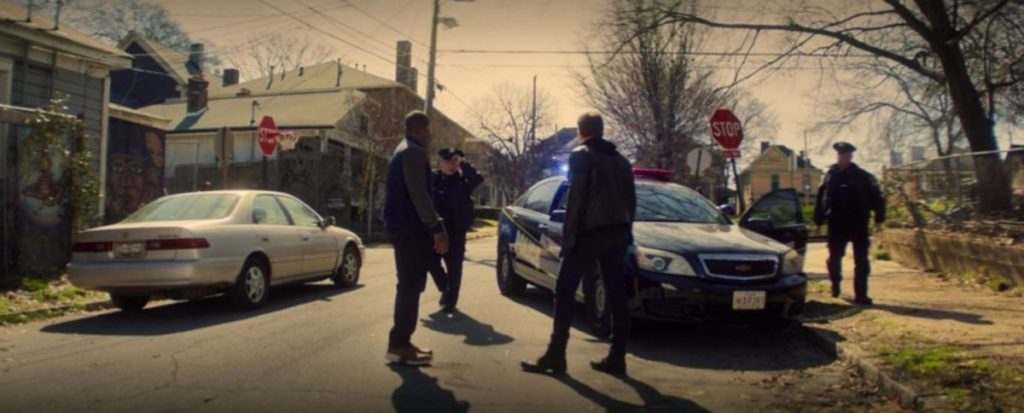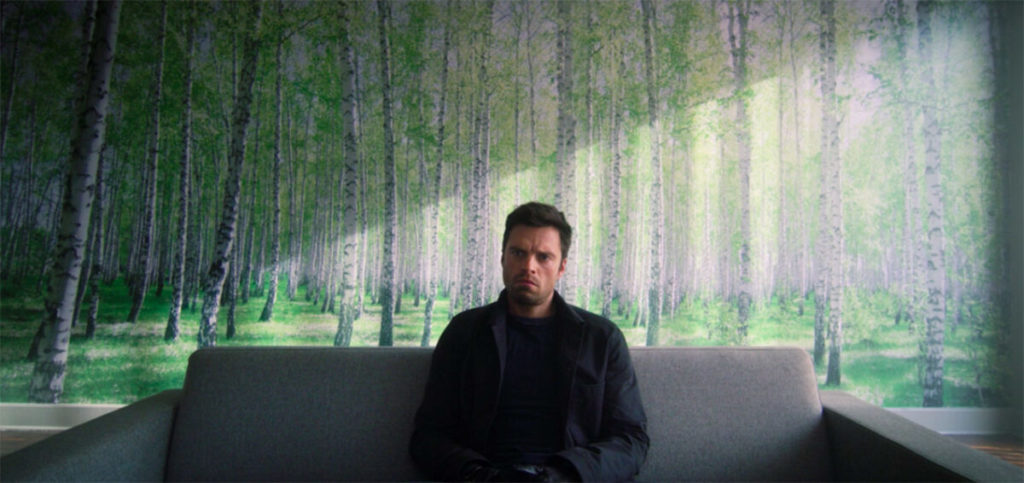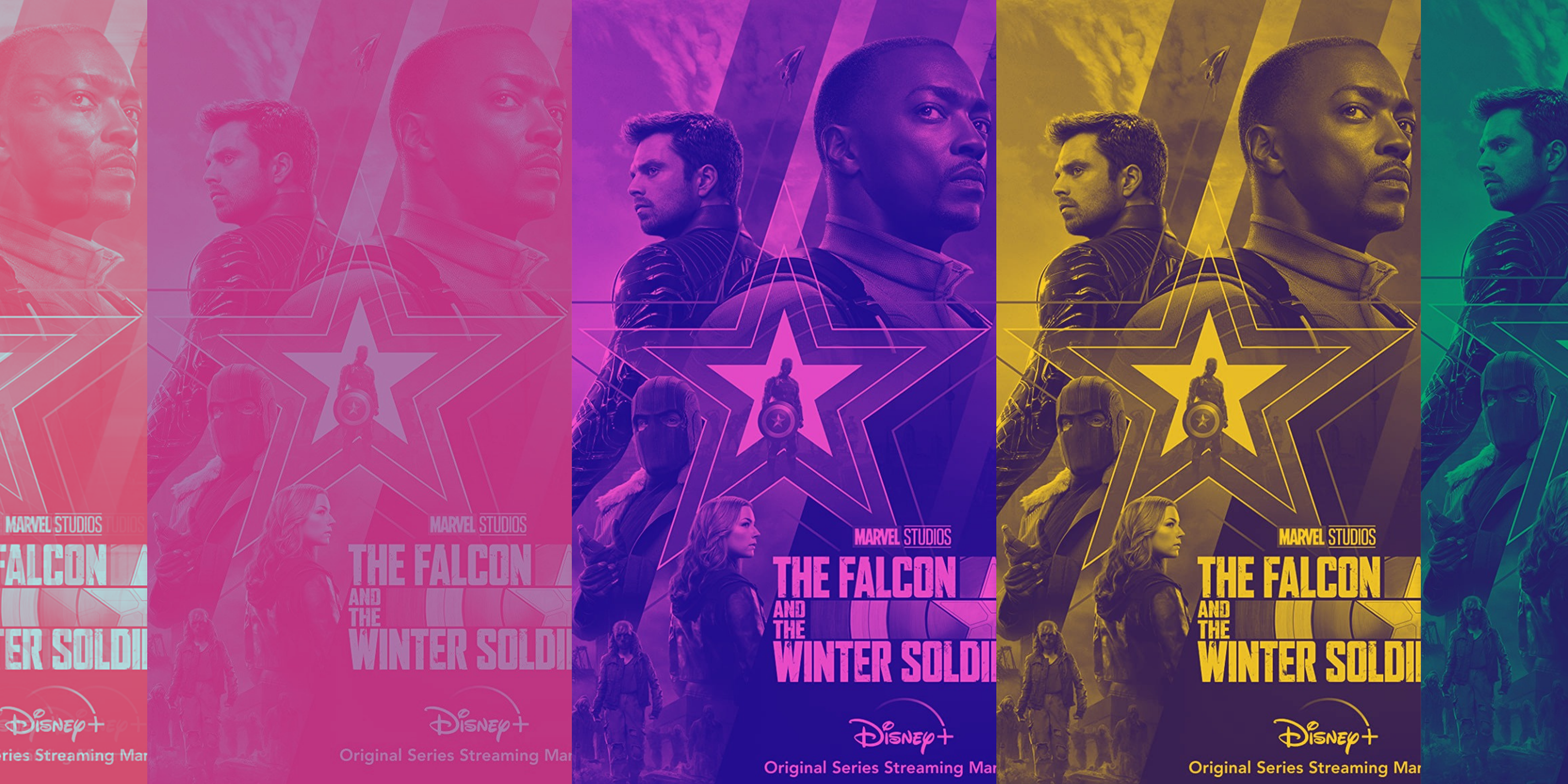On March 19, fans were reunited with Marvel’s two most loved characters, Sam Wilson and Bucky Barnes, in their new miniseries The Falcon and Winter Soldier. But the show surprised the audience by addressing heavy real-world themes such as racism and mental health in only the first episode.
This 6-hour miniseries follows Bucky and Sam as they tackle a fractured post-Endgame society and a government imposed Captain America.
Off the bat, the first episode of the show tackles important social and political themes that are relevant in today’s America.
RACISM
Marvel put a large, non-sugar coated emphasis on the prevalence of racism in the present day which unfortunately does not exclude heroes.
The first episode highlights much of Sam’s perspective and backstory. He gives up Steve Rogers’ shield to the Smithsonian believing that Steve was and will always be the only Captain America.
“It was the right thing to do,” The government official said after the shield was placed in the glass case. This scene was small but impactful because it represented the government’s agreement that a Black man could not carry the shield and become the next Captain America.

This thought was further reinforced when the same officials marched out John Walker, a military captain, and announced that he would carry on Steve’s legacy. Needless to say, the small ending note brought mass outrage among viewers who believed Sam should not have given up Cap’s legacy.
However, in the second episode, Sam’s perspective is further legitimized when he and Bucky meet Isiah Bradley, the first Black super soldier, in their efforts to find leads on the anti-nationalist group, The Flag Smashers.
Isaiah Bradley, one of the saddest stories in the Marvel comics, is now coming to life in the Marvel Cinematic Universe. Like Steve Rogers, Isaiah also received the super soldier serum and was able to survive, making him the first black individual to harbor powers like Steve. But instead of being given a pedestal and universal rights, Bradley was experimented, used as a murder weapon and discarded when the govenrment decided they were through with his skills.
Bradley’s story represents the deep institutional racism laced in every crevice of this country. Any privilege that a white person receives freely, a person of color must work for.

Sam’s reaction to Bradley’s story was one of betrayal. He was appalled that a member of his community that was strong enough to almost destroy Bucky as the Winter Soldier was tortured for wanting to help his country.
But his outburst of anger was not taken well by the community they were in. The biggest, most relevant scene in the show was when the police arrived and asked Bucky, the white man, if Sam, the angry Black man, was giving him trouble. There was no confrontation on Sam’s end because the white police officer was not willing to listen to anything Sam said.

After 2020’s massive Black Lives Matter movement, this scene was very uncomfortable and saddening to watch as viewers saw police racially profile one of their favorite superheroes.
MENTAL HEALTH
While the show introduced Sam’s backstory and struggle to find a place in this racially divided country, it also shed more light on Bucky’s character and trauma.
In his first scene, Bucky wakes up from a nightmare of his time as the Winter Soldier. This signifies his deep Post Traumatic Stress Disorder of decades of mind-control and torture.
Directly after, the show cuts to his therapy session, something the court mandated when they pardoned his crimes and allowed him to maintain free civilian status. An important feature of the therapy session is the close and uncomfortable camera angles capturing Bucky as he blatantly lies to his doctor about having a nightmare.

The intention of the odd camera angles is achieved as viewers feel a sense of invasiveness when either of the two individuals in the room speak about Bucky’s trauma. It perfectly captures Bucky’s own claustrophobia and uncomfortability in the situation, having to recall decades of crimes he committed with his own hands.
Bucky’s inner turmoil is shown in every episode of the show so far. He battles with himself on a regular basis, trying to believe that Steve’s unwavering faith in him was worth the trouble his best friend faced.
During the second episode, Bucky exuded the very sentiment when he lashed out at Sam for not taking the shield.

“If he was wrong about you then he was wrong about me!” Bucky said. Again, a short, but powerful scene, viewers were able to see Bucky’s pain and inner guilt at all the crimes he committed, even under Hydra’s influence.
Bucky’s anxiety, PTSD and extreme guilt are extremely relatable features of the show, things that people experience on a daily basis. Swarmed with dry humor, the show writers tried to keep a lighter stance on Bucky’s civilian experience, but again, did not sugar-coat his trauma.
Ultimately, “The Falcon and Winter Soldier” addressed highly controversial yet significant themes in only its first three episodes. Marvel’s ability to intricately place the themes in their shows so viewers are both entertained and exposed makes this show one of the most relatable shows in the MCU yet.
